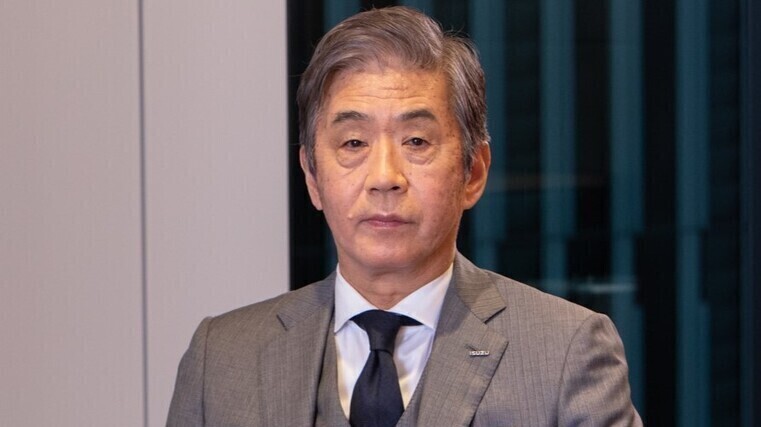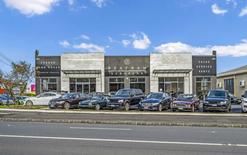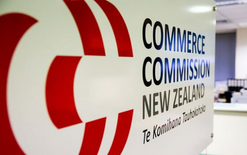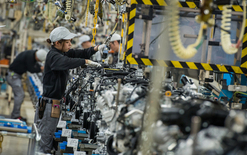‘Early’ tariffs deal needed

The head of an automotive industry organisation in Japan has called for the swift removal of US President Donald Trump’s additional 25 per cent tariffs on cars and their parts.
It comes as government officials travel from Tokyo to Washington DC for another round of ministerial-level talks.
“We hope for tenacious talks to achieve an early agreement,” says Masanori Katayama, pictured, chairman of the Japan Automobile Manufacturers Association.
He adds his association is looking forward to “productive dialogue” to continue between Japan and America, and hopes the discussions will foster the business environment of both countries’ motor-vehicle industries.
Major Japanese carmakers including Toyota and Honda have projected falls in net profits, while others have delayed releasing earnings estimates for the year through to March because of uncertainties over Trump's tariff measures.
Katayama, who is also chairman and CEO of Isuzu Motors, says “it is impossible” for automotive tariffs to not be negotiated in the talks with the US.
He points out Japanese marques have contributed significantly to the American economy, unveiling latest data they have invested some US$66.4 billion (about NZ$113b) in that country since 1982, when local production there was launched, through to the end of last year.
Data also shows the carmakers have locally produced 100 million units. In 2024, 3.28m units came off production lines, generating 110,000 jobs.
According to official Japanese trade data, about 1.37m vehicles were shipped to the US in 2024, accounting for 28.3 per cent of its total exports to the world’s largest economy in terms of value.
Counting the costs
Japan’s biggest carmakers are looking at a hit of more than US$19b from Trump’s tariffs, reports Automotive News Europe.
The impact is likely to linger for years as uncertainty spurs companies to rethink North American investment and production.
Toyota is likely to be the worst hit. It has been anticipating a US$1.2b impact on operating income in April and May. The figure is expected to reach as much as US$10.7b for the whole fiscal year, according to Bloomberg Intelligence.
Nissan and Honda estimate US$3b impacts. Subaru, which imports roughly half of the cars it sells in the US, skipped annual guidance as it predicted a US$2.5b dent. Mazda has also forgone a full-year outlook.
Prime Minister Shigeru Ishiba has vowed not to accept any deal that fails to address automotive tariffs. In the meantime, companies are already rethinking their operations.
Honda plans to postpone building out its EV supply chain in Canada for two years. This includes a factory that could produce 240,000 units per annum. It’s already shifting production of the hybrid version of its Civic from Japan to the US.
Subaru is reviewing all its investments including the development of EVs. Nissan has halted US orders for SUVs built in Mexico, and Mazda is stopping exports to Canada of one model made at an Alabama factory that is a joint venture with Toyota.
For now, Toyota appears to be taking a longer-term view. It has yet to shift any output since tariffs took effect with CEO Koji Sato saying the company will consider building out its production footprint in the US in the medium to long term.
The tariffs are a particularly hard blow for Nissan. It plans to cut 20,000 jobs and shut seven production facilities. Even with extensive restructuring, it is in urgent need of a financial lifeline after talks to merge with Honda collapsed earlier this year.





